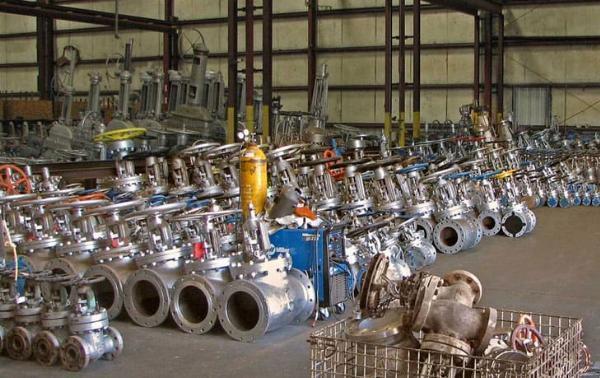Why Quality Matters: Choosing the Right Ball Valve Manufacturer

Ball valves are crucial components in fluid control systems, used across various industries to regulate, direct, and control the flow of fluids. Their reliability and efficiency significantly impact the overall performance and safety of the systems they serve. This blog explores why quality is paramount when selecting a ball valve manufacturer and provides guidance on how to choose the best supplier to meet your industrial needs.
Understanding Ball Valves
Definition and Function
Ball valves are quarter-turn valves that use a spherical disc to control the flow of fluids. When the valve is open, the hole in the ball aligns with the flow direction, allowing fluids to pass through. When closed, the ball is rotated 90 degrees, blocking the flow.
Key Components:
Ball: The spherical element with a hole through its center.
Stem: Connects the ball to the external control mechanism.
Seat: Provides a seal between the ball and the valve body.
Body: Encases the internal components and connects to the piping system.
Common Applications
Ball valves are used in a variety of industries due to their reliability and ease of operation:
Oil and Gas: Regulating the flow of crude oil and natural gas.
Chemical Processing: Controlling the flow of hazardous chemicals.
Water Treatment: Managing water distribution and treatment processes.
HVAC Systems: Regulating heating and cooling systems in buildings.
The Importance of Quality in Ball Valves
Operational Efficiency
High-quality ball valves ensure smooth and reliable operation, which is critical for maintaining system performance and energy efficiency. Poor-quality valves can lead to frequent breakdowns, causing operational delays and increased energy consumption.
Durability and Longevity
Ball valves manufactured with high-quality materials and precise engineering offer extended lifespan and durability. This reduces the need for frequent replacements and repairs, providing long-term cost savings and reliability.
Safety and Compliance
Ensuring that ball valves adhere to industry standards and regulations is crucial for safety. High-quality valves minimize the risk of leaks, failures, and accidents, protecting both the workforce and the environment.
Cost-Effectiveness
While high-quality ball valves may have a higher upfront cost, they offer lower total cost of ownership (TCO) due to their durability and reduced maintenance needs. Investing in quality valves translates to long-term savings and operational efficiency.
Key Factors in Choosing the Right Ball Valve Manufacturer
Reputation and Experience
A manufacturer's track record and industry reputation are critical indicators of their reliability and quality. Look for manufacturers with extensive experience and positive customer reviews.
Customer Reviews and Testimonials: Seek feedback from existing clients to gauge satisfaction and performance.
Industry Reputation: Consider manufacturers recognized for their innovation and quality in ball valve manufacturing.
Quality Assurance and Standards
Ensure that the manufacturer complies with industry standards and follows rigorous quality assurance processes.
Compliance with Industry Standards: Look for certifications such as ISO, API, and ANSI.
Quality Assurance Processes: Evaluate the manufacturer’s quality control measures, including testing and validation procedures.
Material Selection and Engineering
The materials used in ball valve manufacturing significantly impact their performance and longevity. Choose manufacturers that use high-quality materials and advanced engineering techniques.
High-Quality Materials: Stainless steel, brass, and bronze are common materials that offer durability and resistance to corrosion.
Advanced Engineering Techniques: Precision manufacturing and modern engineering practices ensure high-performance valves.
Customization and Flexibility
A good manufacturer should offer customization options to meet specific needs and applications.
Custom Solutions: Tailored valve designs to fit unique system requirements.
Flexible Production Capabilities: Ability to handle small and large orders efficiently.
Technological Innovation
Manufacturers that integrate advanced technologies in their production processes tend to offer better-quality products.
Automation and AI: Use of automated systems and AI for precision manufacturing.
Continuous Improvement: Commitment to innovation and improvement in valve design and manufacturing.
Customer Support and Service
Comprehensive customer support is essential for ensuring smooth operation and maintenance of ball valves.
Pre-Sales Consultation: Technical support and guidance during the selection process.
After-Sales Service: Maintenance support, availability of spare parts, and service agreements.
Evaluating Potential Manufacturers
Research and Shortlisting
Begin by identifying potential manufacturers based on key criteria and industry reputation. Create a shortlist of reputable manufacturers for further evaluation.
Requesting Quotes and Proposals
Request detailed quotes and proposals from shortlisted manufacturers. Compare prices, terms, and conditions to assess value for money.
Assessing Manufacturing Capabilities
Evaluate the manufacturing capabilities of potential suppliers by visiting their facilities (if possible) or reviewing their production processes.
Production Capacity: Ensure the manufacturer can meet your order size and deadlines.
Quality Control Measures: Review the manufacturer’s quality control processes to ensure consistency and reliability.
Reviewing Case Studies and References
Request case studies and references from potential manufacturers to understand their past projects and client feedback.
Case Studies: Examples of successful projects in similar applications.
Client References: Direct feedback from existing clients about their experiences with the manufacturer.
Making the Final Decision
Comparative Analysis
Compare shortlisted manufacturers based on evaluation criteria, weighing the pros and cons of each option. Consider factors such as reputation, quality assurance, customization capabilities, and customer support.
Final Considerations
Ensure alignment with your business needs and long-term goals. Consider the potential for a long-term partnership and the manufacturer’s ability to support future requirements.
Decision Making and Contract Signing
Make the final decision based on a comprehensive evaluation of the shortlisted manufacturers. Sign contracts and initiate the partnership, ensuring all terms and conditions are clearly defined.
Conclusion
Choosing the right ball valve manufacturer is crucial for ensuring the efficiency, reliability, and safety of your fluid control systems. By prioritizing quality, you can reduce operational costs, enhance system performance, and ensure compliance with industry standards. Partnering with reputable valve manufacturers in India who offer high-quality products and comprehensive support is essential for achieving long-term success.
Note: IndiBlogHub features both user-submitted and editorial content. We do not verify third-party contributions. Read our Disclaimer and Privacy Policyfor details.


